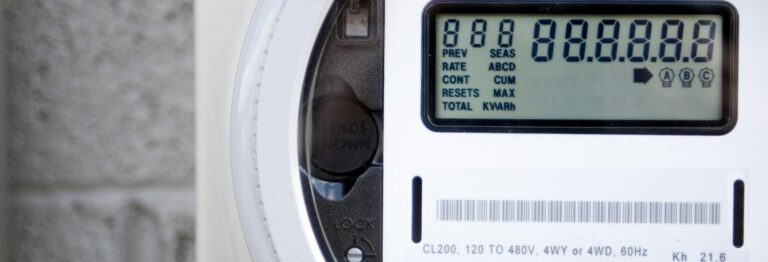That’s because an EU-funded project, NOBEL, persuaded them to install smart electricity meters, which provided them with real-time information about their energy consumption via a website and smart-phone application.The increased knowledge and awareness of their electricity usage led people to reduce their consumption, said Lola Alacreu, the project coordinator.‘It is now easier for them to save energy,’ she said. ‘Campaigns are now needed to raise awareness about the economic advantages of using smart meters.’In Alginet, which has 13 000 residents, 5 700 smart meters were installed. The NOBEL project organised energy-saving games in which players had to meet challenges and reduce their electricity bills. Tests were carried out on street lighting, which would dim when no traffic was around.NOBEL also simulated the installation of solar panels in homes so that Alginet residents could see the amount of electricity – and money – they could generate if they produced power as well as consuming it.It is one of several projects funded by the European Union that aim to spread the uptake of smart meters. As well as helping consumers monitor their energy use, smart meters automatically send monthly consumption data to suppliers, ending the need for manual meter readings.Smart meters are also components of smart grids, which make electricity distribution more efficient and let people sell home-generated solar and wind power back to the grid. In 2012, there were 281 smart grid projects in the EU with a total investment of EUR 1.8 billion from public and private sources, according to the Joint Research Centre, the European Commission’s in-house science service.Smart meters throughout EuropeItaly and Sweden have been operating smart meters for years. But these countries only represent a small share of populations in Europe. Smart grids and meters will really make a difference when more countries also begin to operate them.Based on smart meters deployment experiences it has collected, the METER-ON project is encouraging further take-up of smart metering solutions throughout Europe by providing best practice lessons for the countries that are in the early stages of the deployment phase.Today, only 10 % of households in the EU have some sort of smart meter installed. The aim of a 2009 EU directive is to replace 80% of all electricity meters in the EU with smart meters by 2020.France plans to deploy 35 million smart meters by 2020 and Spain 13 million by 2018. The UK plans to introduce them into 30 million properties over a five-year period from 2015.Smart electricity grids are expected to cut carbon dioxide emissions in Europe by 9 % and annual household energy consumption by as much as 10 %, according to the European Commission’s Directorate-General for Energy.Barcelona football club in Spain is using electricity network analyzers – systems based on smart meters – in six control rooms in its Camp Nou stadium and the surrounding area as part of BEAMS, an EU-funded project. These will help the club to reduce its energy use and plan for periods of high energy demand. The project is not aiming at breakthrough technologies, but to increase and coordinate the use of existing devices, said BEAMS coordinator Antonio Marqués.Another EU-funded programme, called ADDRESS, is focusing on automation and on the transaction protocols among the various actors in the smart metering and smart grids area. It is also combining these with new trading mechanisms and renewable energy. It has developed an energy box, enabling consumers to schedule their use of water heaters, washing machines, and refrigerators for times when renewable electricity is plentiful.Researchers think the European public will take to smarter electricity use. Some EUR 15.8 billion will be invested to install 110 million smart meters in Europe between 2011 and 2017, according to a report by consultancy Berg Insight.
This article was originally published in Horizon, the EU Research and Innovation magazine.
Add to favorites:
Share:
Listing Description
Video
Documents
No documents available.
Ask KETMarket to make a contact
Connect with the Listing Owner!
💬 Please log in now to askKETMarket to make a contact. Not a member yet? Sign up for free and start connecting today!
Video
Related Funding and Finance Opportunities
Unlock Exclusive Funding Opportunities!
🔑 Get instant access to tailored funding opportunities that perfectly match your needs. This powerful feature is exclusively available to our premium members—helping you save time, stay ahead of the competition, and secure the right funding faster.
Upgrade to Premium now and never miss an important opportunity again! Already a premium member? Log in here to explore your matches.
Related Innovation Offers
Discover Tailored Innovation Offers!
🚀 Gain access to technology solutions that match your specific needs and interests—carefully selected to support your innovation goals. These offers are exclusively available to our premium members, helping you identify relevant technologies faster and start the right conversations with potential partners.
Upgrade to Premium now and explore your personalized technology matches today! Already a premium member? Log in here to view your tailored offers.
Related Knowledgeable Resources
Discover More with Premium: Related Knowledge Resources
🔒 You’re missing out on expert-curated knowledge specifically matched to this topic. As a Premium member, you gain exclusive access to in-depth articles, guides, and insights that help you make smarter decisions, faster.
Whether you’re preparing a funding proposal, researching a new market, or just need reliable information—our Premium knowledge matches save you hours of research and point you directly to what matters.
Upgrade to Premium now and instantly unlock relevant knowledge tailored to your needs! Already a member? Log in here to view your personalized content.

